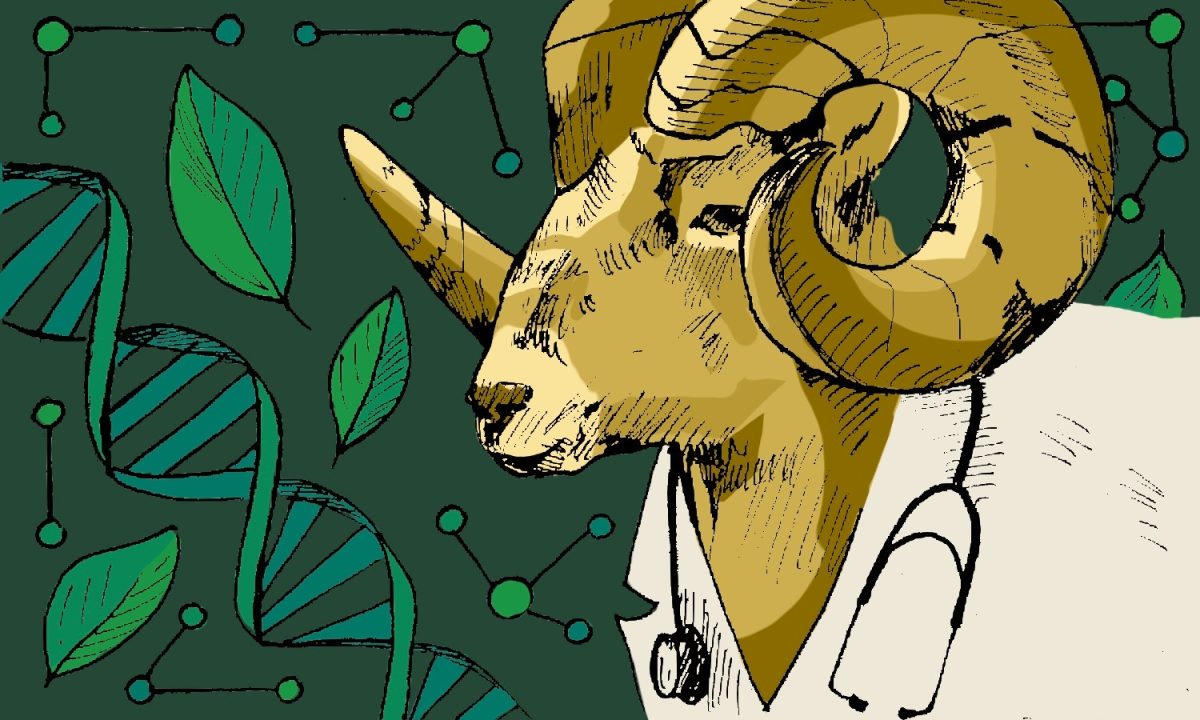Established in August 2022, the Sarah Raabis Lab at Colorado State University is making significant strides to improve animal welfare by focusing on the most pressing issues in the beef and dairy industries — bovine respiratory disease complex and salmonella.
BRD is the leading cause of illness and death in the cattle industry, resulting in an annual $800 million to $900 million economic loss in the United States. BRD is a complex disease with many factors at play, making its pathogenesis and treatment a major concern and focus of research. The pathogenesis of a disease describes how it develops and spreads. Salmonella infection is another area of focus within the cattle industry, with increasing prevalence on dairy farms and a tendency to cause respiratory symptoms. The Raabis Lab’s research in these areas holds promise for the treatment and prevention of disease with an overall aim to improve animal health while reducing costs in the industry.
A current project in the Raabis Lab explores the impact of stress on the immune system and, in turn, a cow’s susceptibility to BRD. Using a technique called bronchoalveolar lavage, samples of immune cells are collected from the lungs of beef cattle. The samples are then examined via single-cell sequencing to detect what type of immune cells are present and what genes the immune cells are expressing.
“One thing about CSU that is strong in the sciences is that all the labs really want to work together to try to move things forward.” -Sarah Raabis, clinical sciences department assistant professor
“We’re comparing samples from calves that are clinically sick with BRD to calves that are healthy and have never been treated for respiratory disease before,” said Grace Jakes, a combined DVM and Ph.D. student and a graduate researcher in the lab.
Comparison of this data gives crucial insight into the factors that contribute to BRD and offers new strategies for preventative measures, another focus of the Raabis Lab.
Working in collaboration with the Dow Lab, the Raabis Lab aims to examine the effectiveness of nonantibiotic immune stimulants for BRD, a treatment method that has been proven to be successful in other species.
“We want to help (cattle) have a stronger immune system earlier in life, which will hopefully reduce the risk of needing to treat disease later on,” said Sarah Raabis, assistant professor in the department of clinical sciences, a clinician for the Livestock Medicine and Surgery Service at CSU Veterinary Teaching Hospital and the leader of the lab. Given the increasing concern about antibiotic resistance, studies like this offer valuable information on alternative treatment options across species.

This connects with the One Health perspective that is so central to the Raabis Lab’s mission. One Health is an approach in the sciences that emphasizes the connection between animal health, human health and the environment. By approaching research with a One Health perspective, studies can be applied to address similar issues across different species of animals.
“One thing about CSU that is strong in the sciences is that all the labs really want to work together to try to move things forward,” Raabis said. “I love researching cattle health, but also making it about One Health aspects.”
Expanding their focus, another project at the Raabis Lab investigates salmonella shedding, or spreading the salmonella bacteria, in dairy cows with a particular focus on strains that can cause respiratory symptoms in calves. The potential link between salmonella shedding and increased susceptibility for BRD is also a priority of this project. To do this, the Raabis Lab analyzes fecal samples to determine the presence of salmonella. Determining which cows are positive for salmonella and which cows are negative for salmonella is an important first step in understanding the pathogenesis of the bacteria, which then gives insight to treatment options.
“We want to see if we can support the animal’s immune system to reduce salmonella’s ability to colonize the gut and spread to other areas such as the bloodstream and the lungs,” Raabis said.
Not only does this research matter from an animal welfare perspective, but it also has financial implications for the cattle industry. Andrew Everitt, an undergraduate researcher in the Raabis Lab, spoke on the economic impact.
“Agriculture operates on thin margins, so even losing a couple of calves in a year could have a long-term business impact,” Everitt said. “Each cow lost is a lost investment.”
Reach Paige Gruber at science@collegian.com or on Twitter @CSUCollegian.












